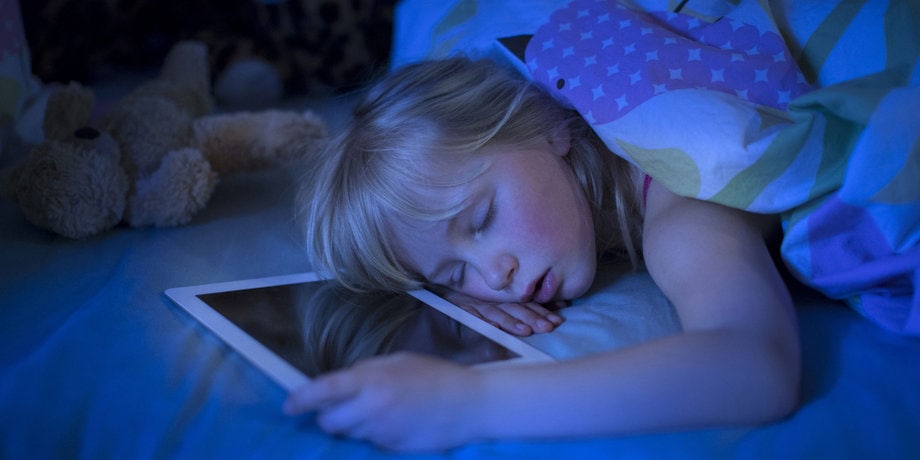What Is the Impact of Screen Time on Children’s Sleep

The impact of screen time on children’s sleep has become a topic of increasing concern. Research has demonstrated a negative relationship between screen time and sleep quality, as well as the disruption of circadian rhythm and increased difficulty falling asleep.
Moreover, screen time has been found to affect sleep duration and is associated with sleep disorders in children. This article aims to explore the effects of screen time on children’s sleep and provide strategies for minimizing screen time before bedtime.
Key Takeaways
- Increased screen time before bedtime disrupts sleep patterns and leads to sleep disturbances.
- Blue light emitted from electronic devices suppresses melatonin production, delaying sleep onset.
- Excessive screen time can contribute to irregular sleep patterns and difficulties in falling asleep.
- The use of screens before bed has been linked to an increased risk of sleep disorders such as insomnia and sleep apnea.
Negative Effects on Sleep Quality
The negative effects of screen time on sleep quality have been extensively documented in empirical research. Numerous studies have shown that increased screen time, particularly before bedtime, can lead to disrupted sleep patterns and sleep disturbances in children.
The use of electronic devices such as smartphones, tablets, and laptops emits blue light, which suppresses the production of melatonin, a hormone that regulates sleep. Exposure to this blue light can delay the onset of sleep and reduce the overall duration of sleep.
Additionally, the content consumed on screens, such as violent or stimulating media, can overstimulate the brain and make it harder for children to wind down and fall asleep. This disruption in sleep patterns can result in daytime sleepiness, decreased cognitive functioning, and behavioral issues.
Therefore, it is crucial to limit screen time, especially before bedtime, to promote healthy sleep habits in children.
Disruption of Circadian Rhythm
Disruption of the circadian rhythm can occur as a result of excessive exposure to electronic devices. This disruption is primarily caused by the blue light emitted from screens, which suppresses the production of melatonin, a hormone that regulates sleep-wake cycles. The impact on melatonin production can lead to difficulties falling asleep and disrupted sleep patterns.
Additionally, research has shown a correlation between excessive screen time and daytime sleepiness in both children and adults. The constant exposure to electronic devices can delay the onset of sleep, resulting in shortened sleep duration and poorer sleep quality. This can have detrimental effects on overall health and well-being, including impaired cognitive function, mood disturbances, and decreased academic performance.
Therefore, it is essential to limit screen time, especially before bedtime, to maintain a healthy circadian rhythm and ensure adequate sleep.
Increased Difficulty Falling Asleep
Excessive exposure to blue light emitted from electronic devices can result in a disruption of the circadian rhythm, leading to increased difficulty in initiating sleep. This difficulty in falling asleep can have a cascading effect on the overall quality of sleep. Research has shown that individuals who struggle to fall asleep often experience difficulty staying asleep as well.
The disruption caused by blue light exposure can interfere with the body’s natural sleep-wake cycle, making it harder to maintain sleep throughout the night. Furthermore, studies have also indicated that prolonged exposure to blue light can negatively affect REM sleep, which is an important stage of the sleep cycle associated with dreaming and cognitive function.
These findings highlight the importance of managing screen time and minimizing exposure to blue light before bedtime to promote healthy sleep patterns.
Impact on Sleep Duration
Prolonged exposure to blue light emitted from electronic devices before bedtime has been shown to significantly reduce the duration of one’s sleep. This has important implications for sleep patterns and cognitive development.
- Impact on sleep patterns:
- Blue light exposure suppresses the production of melatonin, a hormone that regulates sleep-wake cycles, leading to delayed sleep onset and disrupted sleep patterns.
- Increased screen time before bedtime is associated with shorter total sleep duration and poorer sleep quality.
- The use of electronic devices in the evening can lead to a delayed circadian rhythm, making it more difficult for individuals to fall asleep and wake up at desired times.
- Impact on cognitive development:
- Inadequate sleep due to blue light exposure can impair cognitive functioning, including attention, memory, and problem-solving skills.
- Sleep deprivation can negatively affect academic performance and cognitive development in children and adolescents.
- Chronic sleep restriction may have long-term consequences on cognitive abilities and overall brain health.
Relationship Between Screen Time and Sleep Disorders
The relationship between the use of electronic devices before bedtime and the occurrence of various sleep disorders has been extensively studied. Research suggests that screen time before bed is associated with an increased risk of sleep disturbances and disrupted bedtime routines.
Sleep disturbances, such as difficulty falling asleep, frequent awakenings during the night, and poor sleep quality, have been linked to the use of electronic devices before bedtime. The exposure to the blue light emitted by screens can suppress melatonin production, a hormone that regulates sleep-wake cycles.
Additionally, the stimulating nature of screen activities can delay the onset of sleep and disrupt the regular bedtime routine, leading to difficulties in falling asleep and maintaining a consistent sleep schedule.
It is recommended to limit screen time before bed to promote healthy sleep patterns and reduce the risk of sleep disorders.
Strategies for Minimizing Screen Time Before Bedtime
This discussion focuses on strategies for minimizing screen time before bedtime.
Two key strategies for reducing screen time before bed are implementing effective pre-bedtime routines and setting screen time limits.
Effective pre-bedtime routines can help establish a consistent sleep schedule and promote better sleep quality. By engaging in relaxing activities such as reading a book, taking a warm bath, or practicing mindfulness, individuals can wind down and prepare their bodies for sleep.
Setting screen time limits is another effective strategy for reducing the negative impact of excessive screen use on sleep and overall well-being. This can be done by establishing specific timeframes during which screens are off-limits, such as an hour before bedtime.
Effective Pre-Bedtime Routines
Effective pre-bedtime routines are important for promoting healthy sleep habits in children. Establishing consistent bedtime rituals can signal to the child that it is time to wind down and prepare for sleep. These rituals can include activities such as taking a warm bath, reading a book, or practicing relaxation techniques.
Incorporating sleep enhancing activities into the routine can also help to promote better sleep quality. Some examples of sleep enhancing activities include listening to calming music, engaging in quiet play, or practicing mindfulness exercises.
Additionally, creating a calm and comfortable sleep environment, such as dimming the lights and ensuring a comfortable temperature, can further support the child’s ability to fall asleep and stay asleep throughout the night.
Setting Screen Time Limits
Limiting the duration of electronic device usage before bedtime has been shown to be beneficial for promoting optimal sleep patterns in young individuals. Setting boundaries around screen time can help establish healthy habits and improve overall sleep quality.
Research indicates that excessive screen time, particularly before bed, can disrupt the natural sleep-wake cycle, leading to difficulties falling asleep and decreased sleep duration. By implementing screen time limits, parents and caregivers can create a consistent pre-bedtime routine that prioritizes sleep.
This can involve establishing a designated time when electronic devices are turned off, creating a screen-free zone in the bedroom, and encouraging alternative activities such as reading or relaxation techniques before sleep. By setting these boundaries, individuals are more likely to engage in behaviors that promote healthy sleep and improve overall well-being.
Frequently Asked Questions
How Does Screen Time Affect Children’s Overall Sleep Quality?
The impact of screen time on children’s overall sleep quality can be assessed by examining its effects on cognitive development and melatonin production. These factors are essential for understanding the relationship between screen time and sleep.
What Are the Long-Term Effects of Screen Time on Children’s Circadian Rhythm?
The long-term consequences of screen time on children’s circadian rhythm involve the disruption of sleep patterns. This disruption can have a negative impact on the quality and duration of sleep, leading to potential health problems.
Does Increased Screen Time Make It Harder for Children to Fall Asleep?
Increased screen time can have a negative impact on children’s ability to fall asleep due to the effects of blue light on their sleep-wake cycle and the suppression of melatonin production.
How Does Screen Time Impact the Duration of Children’s Sleep?
The impact of screen time on the duration of children’s sleep can be influenced by factors such as exposure to blue light, which may disrupt sleep patterns. Additionally, excessive screen time has been associated with an increased risk of developing ADHD symptoms.
Are There Any Specific Sleep Disorders That Are Commonly Associated With Excessive Screen Time in Children?
Excessive screen time in children is commonly associated with specific sleep disorders, such as delayed sleep onset, shorter sleep duration, and poor sleep quality. Additionally, screen addiction may further exacerbate these sleep disturbances.







